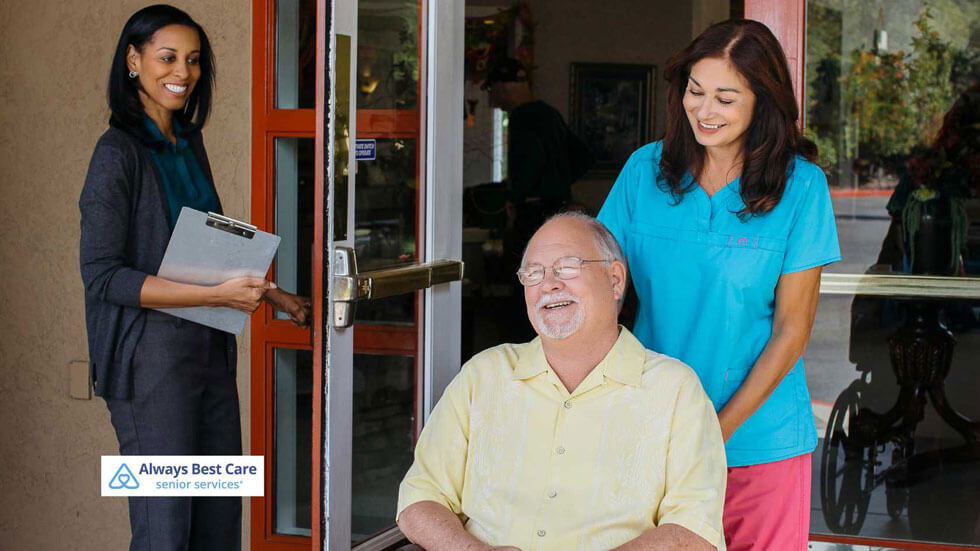Bridging the Gap: How Always Best Care of San Antonio Supports Seniors Transitioning from Hospital to Home

When seniors leave the hospital, the journey toward recovery truly begins. Transitional care plays a key role in making this shift smoother and safer.
At Always Best Care of San Antonio, we understand the unique needs of seniors and work to provide the support they need during this critical time. We aim to help seniors heal comfortably and confidently in their homes while easing family members’ concerns.
Table of Contents
Why Transitional Care Matters After a Hospital Visit
Recovering after a hospital stay is a critical phase, especially for seniors. Returning home might seem like a relief, but it often brings many new challenges, from managing medications to maintaining physical safety.
Transitional care bridges the gap between hospital care and complete recovery, ensuring seniors receive the support they need to heal comfortably and confidently at home.
Adjusting to New Routines and Medications
A hospital discharge often includes new instructions, medication schedules, dietary adjustments, and activity restrictions. Without proper guidance, understanding and implementing these changes can be overwhelming for seniors.
Transitional care provides the hands-on support needed to establish these routines, ensuring medications are taken correctly, dietary needs are met, and new habits are formed to support recovery.
- Medication Reminders: Seniors may need to follow a complex regimen of pills, patches, or injections. A transitional caregiver can help set medication reminders.
- Establishing Safe Routines: From meal planning to exercise schedules, transitional care ensures seniors adapt seamlessly to these changes, reducing confusion and stress.
- Education and Empowerment: Caregivers take the time to explain recovery plans and instructions to both seniors and their families. This builds confidence and understanding, making everyone involved feel better prepared and informed throughout recovery.
Reducing the Risk of Hospital Readmissions
Hospital readmissions can be physically and emotionally taxing for seniors. However, with the proper post-discharge care, many readmissions are preventable. Transitional care focuses on proactive measures to identify and address potential issues early, minimizing risks.
- Health Monitoring: Caregivers can track vital signs and symptoms to spot complications before they escalate.
- Follow-Up Care: Ensuring timely follow-ups with healthcare providers keeps recovery on track and addresses concerns promptly.
- Injury Prevention: Caregivers assess the home environment to reduce fall risks and other hazards that could lead to re-injury.
Providing Emotional and Social Support
Recovering at home can feel isolating for seniors, especially those who live alone or far from family. Emotional well-being is just as important as physical recovery, and transitional care addresses this need through companionship and encouragement.
- Companionship: A friendly presence can lift spirits and help seniors feel connected during recovery.
- Reducing Anxiety: Caregivers provide reassurance and guidance, helping families and seniors navigate the uncertainties of post-hospital care.
- Encouraging Positive Engagement: Participating in light activities, hobbies, or family conversations can help seniors maintain a sense of normalcy.
Peace of Mind for Families
Transitional care benefits seniors and provides relief for family members. Knowing their loved ones are supported by trained caregivers brings peace of mind and allows families to focus on spending quality time together.
- Clear Communication: Caregivers inform families about progress, challenges, and milestones.
- Reduced Caregiving Stress: Professional support eases the burden on family members, allowing them to rest and recharge.
6 Challenges Seniors Face When Transitioning From Hospital to Home
The move back home after a hospital stay is a critical period for seniors. While returning to a familiar environment can be comforting, it often presents new hurdles that can impact recovery. From managing medications to navigating emotional and physical adjustments, these challenges can feel overwhelming without proper preparation and support.
- Managing New Medications
Many seniors are discharged with updated medication plans that include new prescriptions or adjusted dosages. This can be confusing, especially for those already managing multiple medications. Forgetting a dose, taking the wrong one, or misunderstanding instructions can have serious consequences, making proper medication management a top priority. - Limited Mobility
Recovery often brings physical challenges such as muscle weakness, joint pain, or restricted movement. Once simple tasks—like getting out of bed, bathing, or climbing stairs—can become daunting. Without the right mobility aids or assistance, seniors risk falls or reinjury, hindering their recovery. - Follow-Up Appointments
Scheduling and attending follow-up doctor visits can be challenging, particularly for seniors without reliable transportation or those who find it difficult to keep track of their appointments. Missing these check-ups can lead to recovery delays or unaddressed complications. - Risk of Reinjury or Complications
The home environment can present safety risks that hospitals are designed to avoid. Cluttered spaces, uneven flooring, or a lack of handrails can lead to falls, while inadequate monitoring of health changes can result in unnoticed complications. - Emotional Struggles
Recovering at home can feel isolating, especially for seniors who live alone or have limited social interaction. Feelings of loneliness or anxiety can impact their motivation to follow recovery plans, potentially slowing down their progress. - Nutritional and Hydration Concerns
Eating well-balanced meals and staying hydrated is critical for recovery, yet many seniors struggle with meal preparation or simply forget to drink enough water. Poor nutrition or dehydration can weaken their immune system, making them more vulnerable to complications.
4 Ways Always Best Care of San Antonio Ensures a Smooth Transition
Transitioning from hospital to home is critical to a senior’s recovery journey. At Always Best Care of San Antonio, we know how important it is to provide reliable and compassionate support during this time. Focusing on tailored care and proactive planning ensures seniors and their families feel prepared and confident as they navigate this new phase. Here are four key ways we help make the transition as smooth and seamless as possible.
1. Comprehensive Discharge Planning Made Simple
We collaborate with hospital staff and families to create a detailed plan that outlines everything needed for a safe return home. From medication schedules to care instructions, we make sure nothing is overlooked.
2. Preventing Hospital Readmissions With Proactive Support
Our caregivers focus on preventive measures like medication reminders, proper nutrition, and ensuring follow-up appointments are scheduled and attended. By addressing potential risks early, we help seniors avoid unnecessary trips back to the hospital.
3. How We Stay Connected With Medical Providers Post-Discharge
We maintain close communication with medical teams to stay updated on recovery progress. This ensures that care plan changes or medication are implemented promptly and accurately.
4. Personalized Support for Every Senior’s Needs
No two recoveries are identical, so we tailor our services to each senior’s unique situation. Whether assisting with daily tasks, mobility support, or companionship, we’re here to help make the transition smoother.
Empower Seniors for a Safer Recovery at Home With Always Best Care!
At the heart of our work is helping seniors feel comfortable, safe, and supported after a hospital stay. At Always Best Care of San Antonio, we’re here to bridge the gap between hospital and home, offering personal and truly supportive care.
Let us help your loved one recover confidently in the place where they feel most at ease—their home.
Contact Always Best Care of San Antonio at (210) 772-2277 to learn more and schedule your free consultation.





